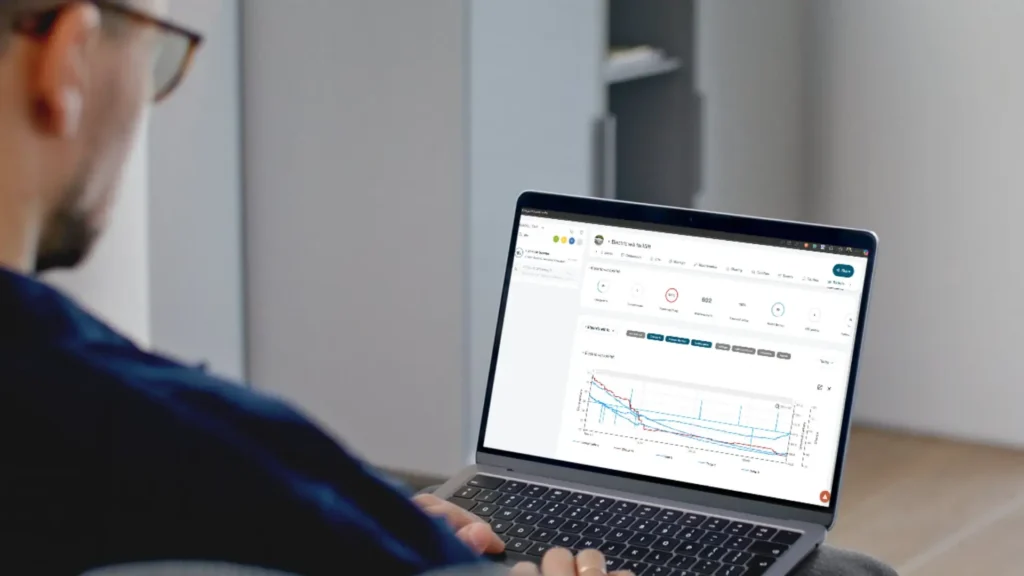In a world moving rapidly toward cleaner, more efficient transportation, sustainable fleet management is no longer optional but also a competitive advantage. Fleet operators everywhere are discovering that the same technologies once used to track vehicles are now key to reducing emissions, saving fuel, and driving long-term profitability.
Welcome to the era of smart, connected, and sustainable fleets — powered by IoT and telematics.
Why Sustainability Matters in Fleet Operations
Transportation accounts for nearly 25% of global CO₂ emissions, and road vehicles are responsible for the largest share. As regulations tighten and customers demand more eco-conscious operations, fleet operators are under pressure to rethink how they run their vehicles — from fuel choices to driver behavior.
But there’s a silver lining: sustainability and cost efficiency go hand in hand.
Reducing emissions often means cutting waste, less idling, better maintenance, and data-driven decision-making. With the right telematics tools, fleet managers can achieve both environmental and financial wins.
How IoT and Telematics Enable Green Fleet Management
Telematics has evolved beyond basic vehicle tracking. Modern IoT-powered systems collect hundreds of data points in real time, transforming raw data into actionable insights.
Here’s how that translates to sustainability:
1. Eco-Driving and Behavior Insights

Telematics devices monitor driver habits like speeding, harsh braking, or idling. Fleet managers can identify patterns and coach drivers towards safer, more fuel-efficient practices. Studies show eco-driving can cut fuel use by 10–20% — and significantly lower CO₂ emissions.
2. Predictive Maintenance and Reduced Downtime
Poorly maintained engines burn more fuel and release more pollutants. IoT sensors can flag early signs of wear, temperature anomalies, or fault codes before they escalate, ensuring vehicles stay efficient and compliant.
3. Fuel Monitoring & Management
IoT fuel monitoring systems detect abnormal drops or leaks, reducing both fuel waste and environmental risk. Paired with usage reports, this gives full visibility into every litre consumed.
4. Fleet Electrification Readiness

As electric vehicle adoption grows, telematics systems are evolving to support battery health tracking, charging optimization, and range management; key tools for managing hybrid or EV fleets efficiently.
The Real-World Impact: Data-Driven Emissions Reduction
A recent global fleet technology study found that fleets using GPS + analytics achieved measurable sustainability results within the first year:
- 30% reduction in idle time
- 12–20% improvement in fuel efficiency
- Lower CO₂ emissions per kilometre by over 15%
These results aren’t just statistics; they’re proof that sustainability can be built through visibility. When fleet managers can see exactly how their vehicles perform, inefficiencies become opportunities for improvement.
The Opportunity for African Fleets
In Kenya and across East Africa, the path to electrification is just beginning. Yet even without large-scale EV adoption, IoT-driven efficiency offers immense potential for sustainability.
Fleets operating in logistics, public transport, or school services can already leverage IoT to:
- Cut operational costs while reducing emissions
- Improve compliance with emerging sustainability policies
- Extend vehicle lifespan through predictive maintenance
- Build eco-conscious brands that attract contracts and funding
Making Sustainable Fleet Management Measurable
Sustainability shouldn’t be a buzzword; it should be a measurable metric. That’s why modern telematics platforms now include Eco-Reports; dashboards that track:
- Fuel economy over time
- Idling and harsh driving events
- Driver efficiency scores
This data doesn’t just prove compliance, it helps fleet managers make continuous improvements, benchmark performance, and showcase impact to customers or investors.
The ROI of Going Green
Fleets implementing IoT-based eco-driving and maintenance programs typically experience:
- Fuel cost savings: 10–25% reduction
- Extended vehicle lifespan: fewer breakdowns and replacements
- Lower insurance premiums: due to improved driver behavior
- Enhanced reputation: among clients and partners
In short, every litre saved is both a cost reduction and a carbon reduction.
The Future Is Smart and Sustainable
The road to green fleets doesn’t happen overnight, it’s a data-driven journey powered by insight, innovation, and intention. Whether your fleet runs diesel, hybrid, or EV, the principles remain the same: measure, optimize, and act.
At WhiteLabel Tracking, we believe that sustainable fleet management starts with visibility. From fuel analytics to driver performance, our IoT platform helps fleet operators take control of their environmental impact while staying profitable and efficient.
Ready to Make Your Fleet Smarter?
Start with a free trial to analyze your fleet data and identify where you can save fuel, reduce emissions, and extend vehicle life — using the same tools that power top-performing fleets across Africa.